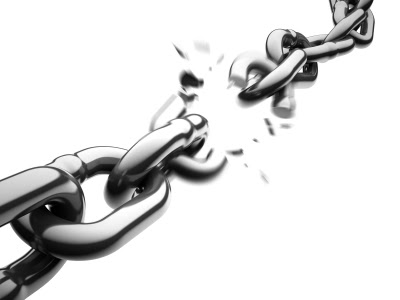When this country was founded, they specifically designed Congress to be slow and lethargic. Well, Congress found a way around it by creating these organizations like the FDA, FAA, SEC, etc, etc ad nauseum. Each of these organizations don't just make guidelines, but regulations.
To summarize, the WTLA says that Congress has delegated the creation of laws and regulations to these unelected groups of bureaucrats. Worse even than this is that then these bureaucrats have then granted themselves the authority of prosecutor, judge and jury for those that may break the rules.
Take, for example, the early April grounding of hundreds of American Airlines planes. Well, this wasn't a law enacted by Congress. This was a regulation made by the FAA. And what was the regulation that American Airlines so cavalierly ignored at the risk of peril to their very customers? Well, the FAA says that the cabling in the landing gear must be bundled by zip ties (or equivalent) every 1 inch. Well, in an inspection, they found that American Airlines had the audacity to have gaps of not only 11/8inches, and 11/4inches, but even 11/2inches!!!! *gasp* The gaul!
So the WTLA basically says that an individual or organization can only be held legally liable to laws that Congress makes. Now when I first read about this, I wondered what would happen if we actually enacted something like this. Would businesses suddenly start doing whatever they wanted at the expense of the consumer? Would foods suddenly start containing rats and leading to food poisoning because of the cleanliness standards now lacking teeth to enforce them? Would planes start falling out of the sky because the safety regulations have no muscle? Would we go back to the days before government oversight when "buyer beware" wasn't just because it might cost you a little extra money? The reason I don't believe this is simple: the Internet! Consumer watchdog groups are all over the place and with the advent of the internet, people can now more easily determine which companies are lacking the high quality we expect now. And if for whatever reason, whether lack of money or being greedy capitalist pigs wanting to maximize profit at the expense of quality control, consumers and similar groups can more easily expose bad corporations willing to cut quality corners. Because of this, I believe that if a company gets a reputation for low quality, then they would begin to feel the consequences in revenue. Besides, if Congress determines that it's necessary that the airlines have certain safety regulations since it would be deadly not to, then it could pass the bill that contains those regulations.
This would also possibly free up another pet peeve of mine: licensing EVERYTHING. I can't open a shop in my own home to cut hair if I don't get a certified license from the govt saying ... I don't know, that I'm qualified not to cut someone's ear off I guess (which I probably am not ... thus the reason I don't have that license ... but that's beside the point). I could understand wanting to get a license to prove that I'm GOOD at cutting hair, but requiring it before someone can open such an establishment is just too much for me.
Anyway, the other law, the RTBA says that many of these laws don't even get read by members of Congress. They're put together so quickly and are so massive that they aren't actually read completely. This means that there are things that could potentially get slipped in unbeknownst to those Congresspersons that wouldn't agree to it, but because it doesn't get properly vetted, it slips through and becomes law. So the RTBA says that members of Congress must sign under penalty of perjury that either they read the bill in its entirety or that they were present if/when it was read out loud during a session of Congress. While I'm not sure that the 'reading out loud' part would pass, I do think that the concept of having them sign saying that they actually read it is a good idea. It at least puts the onus on them that they can't claim they didn't know some section was in there.
However, beyond the requirement on Congress to actually read the bills, one of the things that I most like about the RTBA is that it requires that the final version of the bill be made available online 7 days prior to voting it into law. If an amendment is made to a bill, it must again sit for 7 days online before it can be voted into law. (Obviously this could be overridden by a super-majority in an emergency.) I LOVE this idea. It allows govt watchdogs to have the time to really find the questionable appropriations, pork barrel projects, and other seemingly hidden clauses.
For another time, two additional things that I think would help clean up Washington:
- Term limits
- Consider perhaps 2, 6 year terms
- Signed amendments
- Every amendment, every inserted clause and whatnot, has the name of the legislator who made the motion for the change. This way we can see who wants to add what things.
